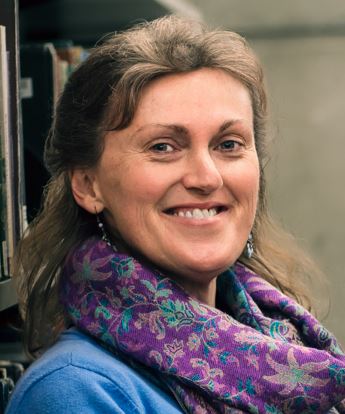Advocacy
Jobs News
Policy
Research
Workforce
Here are five ways the government could demolish barriers to early learning

Contributed Content
Sep 24, 2024
Save
The Final Report from the Productivity Commission (PC) into Early Childhood Education and Care was released last week. This is the second in our two-part series unpacking the Commission’s proposed road map for universal access to early learning.
Yesterday: Early learning - Every child deserves access now. Here’s how we can make that happenToday, we look at the barriers.

To implement Productivity Commission recommendations for early learning, the Government needs to attract, support, and retain educators to ensure the workability of these reforms. In this article, I outline the barriers facing educators, including poor job design, the high cost of higher education, low status and wages, and the burden of regulatory requirements as shown in the figure below.
Figure 1: Barriers to opportunity for early learning in Australia
For each of these barriers, I provide information from reports, government departments,agencies, and organisations. To illustrate this, I also provide either data from our mixedmethods online survey study involving 82 Australian educators or, where indicated, publiclyavailable data. A summary of what the PC said is in the final column.
| Barriers toearly learning | Information | Data | Productivity CommissionRecommendation |
| Poor job design | It is puzzling tounderstand why schools inAustralia are equippedwith administrativeofficers, grounds peopleand cleaners, but earlylearning services are not.Educators study childdevelopment, philosophiesof learning, ways tosupport children’slearning, curriculumassessment, planning andevaluation and how to bestsupport families. Thenthey enter the workforceand are expected to spendinordinate amounts oftime cleaning and fillingin forms. It is a waste oftheir time and talents.Additionally, the timeallocated to filling out allthe forms would beadequate if they were in aprivate office rather thanwhile they are educating aroom full of children. Theamount of time doesn’ttake into consideration ifthey are short staffed. | “Washing and foldinglaundry is NOTsomething you learn inan educationqualification …educators spend a lot oftime (and constantlyhounded bymanagement) to dotasks that in otherworkplaces wouldrequire [a] cleaner”.(Educator)“Most adults wouldstruggle to fill in legalpaperwork while alsosupervising childrenattempting riskyclimbing, playinggames, drinking abottle, putting smallparts in their mouth.”(Educator) | The PC statesfurther awardincreases mustimprove their payand conditions toalign with schoolteachers. |
| High cost of higher education | Gaining the qualificationsrequired to be an earlychildhood educator takes atoll on educators' time,energy, and budget. Whilethe Government is nowfunding practicums, andsome state and territorygovernments are offeringfee-free places, the educator must provide the time andenergy to study.This can mean fewer daysworking or sacrifices totheir health, social life,and relationships. | “Educators are beingrushed throughtraineeships to meetDoE requirements, soare ECT[s]!”(Educator)“I would love to domore but don't have the hours in the day. Iexercise each morningat 6am before I startwork.” (Educator) | The PC asks formore support forstudent educatorsin general terms. |
| Low status | Due to their links tomotherhood, anotherunderappreciated role,early childhood educatorsare less respected thanschool teachers inAustralian society, eventhough they may be just asqualified. Those teachingyounger age groups can bemore affected. Studieslink low status witheducator burnout. | “I was in a centrewhere staff weren’tvalued. Relationshipswere for show”.(Educator)“Cleaners can earnmore than I do, and yetI studied for 2 years fora diploma to earn just$32hr. We aresacrificed so that otherwomen can go to workand earn a high wage.”(Educator) | The PCrecommendsstandardisingschool teacherand earlychildhoodeducatorregistration toimproverecognition. |
| Low wages | Low wages meaneducators struggle to paytheir bills and enjoy areasonable quality of life.This impacts their healthand wellbeing and theirfeelings of burnout. Theincrease of 15% helps, butdoes not mean their pay isin line with school teachersalaries for earlychildhood teachers withthe same qualifications. | “I earn $30 per hour asa qualified ECT with adegree - my 17-year-old daughter is in highschool and gets thesame amount of money,as a swimminginstructor”. (Educator) | The PC statesfurther awardincreases mustimprove their payto align withschool teachers. |
| Burdensomeregulatoryrequirements | Educators spend much oftheir day filling in formsto prove they areproviding high qualityeducation and care.Administrative overloadwas one of the threereasons given byeducators who reportedthey wanted to leave thesector early. | “Yes, we needpaperwork but we alsoneed to be there for thechildren, staff getoverwhelmed with allthe paperwork requiredand training that needsto be done during awork day and there isnever enough time to doeverything so a lot ofstaff do things athome”. (Educator) | The PC calls forreducing theadministrativeburden forapplying forinclusion supportfunding butdisappointingly,not for otheraspects of theirwork. |
What governments must do
The Government will need to consider the PC’s recommendations carefully and it could also heed the advice of the Royal Australasian College of Physicians (RACP). Professor Nitin Kapur, President of the RACP's Paediatric and Child Health Division, said the RACP was pleased to see the PC recognise the importance of access to high-quality learning and care in the early years of a child’s life.“As experts in children’s health and wellbeing, we have long advocated for universal access to early childhood education and care because we recognise the profound positive impact it can have on children’s lives.
“Access to high-quality learning and care in the early years can help boost health, social andcognitive development outcomes for children, and ensure that they start school ready.
To stem the flow of educators out of the sector, entice educators back, and attract more, they need a range of measures to improve educators’ working conditions. Our educators deserve much better.

Marg Rogers is a senior lecturer in early childhood education at UNE and a postdoctoral fellow at the Manna Institute.
Don’t miss a thing
Related Articles



















